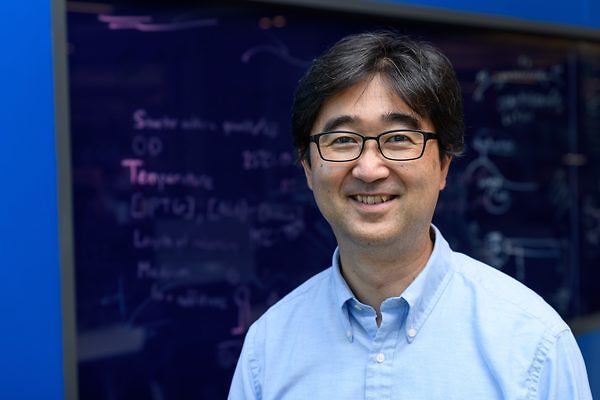Seminar by Prof. Shuichi Takayama "Microfluidic Studies of Lung Injury, Infection, and Fibrosis"

Date
Location
Description
Speaker: Professor Shuichi Takayama
Affiliation: Georgia Tech, USA
Title: Microfluidic Studies of Lung Injury, Infection, and Fibrosis
Abstract:
This presentation will describe microfluidic technologies and their application to in vitro cell culture systems that model lung diseases. Microchannel technologies will be described that produce life-like pulsatile flows for study of lung injury, enhancement of in vitro fertilization, and analysis of frequency-dependent cellular responses. The microchannel technologies include piezo-electric actuator arrays from Braille displays and self-switching microfluidic circuits that switch fluid flow on and off periodically on their own. An inflammatory chromatin biomaterial we call “microwebs” inspired by neutrophil extracellular trap (NET) will also be described. NETs are produced in the lung, urinary tract and other parts of the body when subjected to bacteria invasion. While NETs can be beneficial for fighting bacteria, an imbalance can lead to persistent infection in spite of excess NET production. We use microwebs with defined molecular composition and nanoscale structures to better understand what parameters might impact the effectiveness of NETs in fighting bacteria. For example, E. coli, including clinical isolates and resistant strains, are killed more efficiently by the last-resort antibiotic, colistin, when bound to microwebs. On the other hand, Pseudomonas aeruginosa can be quite persistent despite an excess of microwebs, particularly under conditions that mimic the lungs of cystic fibrosis patients. Finally, the presentation will describe use of aqueous two phase system (ATPS) droplets to bioprint miniature “scars” that represent an aspect of lung fibrosis that can accompany lung injuries.
Biography:
Prof. Shuichi Takayama’s research interests started with bioorganic synthesis at the University of Tokyo and Scripps Research Institute. Subsequently he pursued postdoctoral studies in bioengineered microsystems at Harvard University as a Leukemia and Lymphoma Society Fellow. He spent 17 years at the University of Michigan in the Biomedical Engineering Department and Macromolecular Science and Engineering Program, then moved to the Wallace H. Coulter Department of Biomedical Engineering at the Georgia Institute of Technology and Emory School of Medicine in the summer of 2017. He is an associate editor of Integrative Biology and recipient of the Pioneers of Miniaturization Prize.
Education:
B.S.& M.S., 1986-1994, Agricultural Chemistry, University of Tokyo
Ph.D., 1994-1998, Scripps Research Institute, Chemistry
Postdoc 1998-2000 Harvard University, Chemistry and Chemical Biology
Website Link: http://microfluidics.gatech.edu/
Intra-Group Category
Subscribe to the OIST Calendar: Right-click to download, then open in your calendar application.



